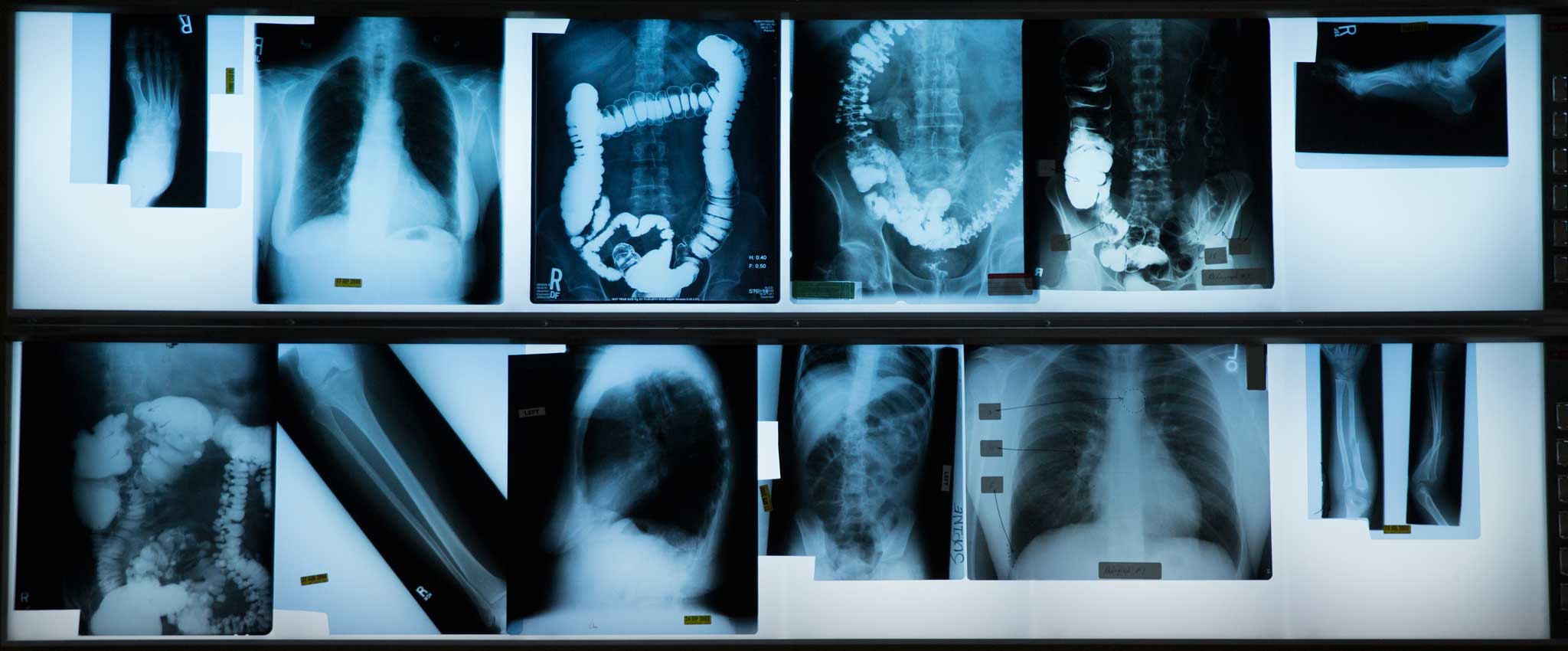
Radiologic technologists perform diagnostic imaging examinations using x-rays on patients to create images of specific parts of the body. Technologists prepare patients for the imaging exam, position patients to ensure accuracy, and use their knowledge and skills to minimize the radiation dose. These responsibilities are essential to ensure the image they provide to the Radiologist will aid in the interpretation for diagnosis and monitoring of diseases.
"Radiologic technologists are the third largest category of healthcare professionals, surpassed in number only by physicians and nurses," according to The American Registry of Radiologic Technologists.
To become a Radiologic Technologist, you must meet the following criteria:
If you are completing these course requirements in the spring or summer semester, you are eligible to submit your application. The above courses must be completed with a "C" or better for your application to be considered. Minimum GPA in prerequisite courses is 2.5. All science courses must be completed within the past 7 years.
Admission to the Radiologic Technology Program is selective with a new class starting in the fall of each year. Applications for the Radiologic Technology Program are accepted during the spring semester with a deadline of April 15th. Applications may be accessed through the website. Completed application should be submitted along with official transcripts. It is your responsibility to ensure that all paperwork is complete when submitted.
The applicant will be required to take the ATI TEAS exam. The fee for this exam must be paid when you register for the exam online. The test will be taken at the NPC Testing Center.
Acceptance is based upon the following criteria:
The ARRT states you must "be a person of good moral character and must not have engaged in conduct that is inconsistent with the ARRT rules of ethics." You will not be eligible to apply for the program without proper documentation from the ARRT.
You must contact the American Registry for Radiologic Technologists for an AART pre-application ethics review to ensure eligibility.
The NPC Radiologic Technology Program abides by the tuition rates established by National Park College. For the current tuition rates, please visit NPC Tuition Fees or call Enrollment Services at 501-760-4159.
There are 68 credit hours required for the Associate of Applied Science in Radiologic Technology degree. There are additional expenses related to the program including books, scrubs and other additional fees.
The newly registered radiographer with no experience should have little difficulty finding immediate employment nationwide, starting from $54,000- $65,000 per year. Local employment is not guaranteed.
The coursework for the Radiologic Technology curriculum is completed in 21 months. The program consists of five consecutive semesters, including summer semesters.
The program currently utilizes CHI St. Vincent Hot Springs and associated clinics, National Park Medical Center (Hot Springs), Saline Memorial Hospital (Benton), Arkansas Children's Hospital (Little Rock), Baptist Health Medical Center Hot Spring County (Malvern), Baptist Health Medical Center (Arkadelphia), Christus St Michael Hospital (Texarkana), First Care Walk In (Hot Springs) and Orthopedic Center of Hot Springs.
Clinical assignments are made by program faculty to ensure that all students are rotated to each clinical sites throughout the entirety of the program to maximize learning opportunities and allow demonstration of required competencies.
According to contracts with clinical agencies, Radiologic Technology Students are required to have the following:
The NPC Radiologic Technology courses are presented in a traditional, face-to-face lecture format. NPC utilizes D2L as the learning management system.
The course schedule for the Radiologic Technology Program can be found on the Graduation Map.
You may contact the Radiologic Technology program faculty for additional information
Contact program director Carla Kelley at 501-760-4286 or email carla.kelley@np.edu.
Contact program clinical coordinator Kelly Stringer at 501-760-4207 or email kelly.stringer@np.edu.